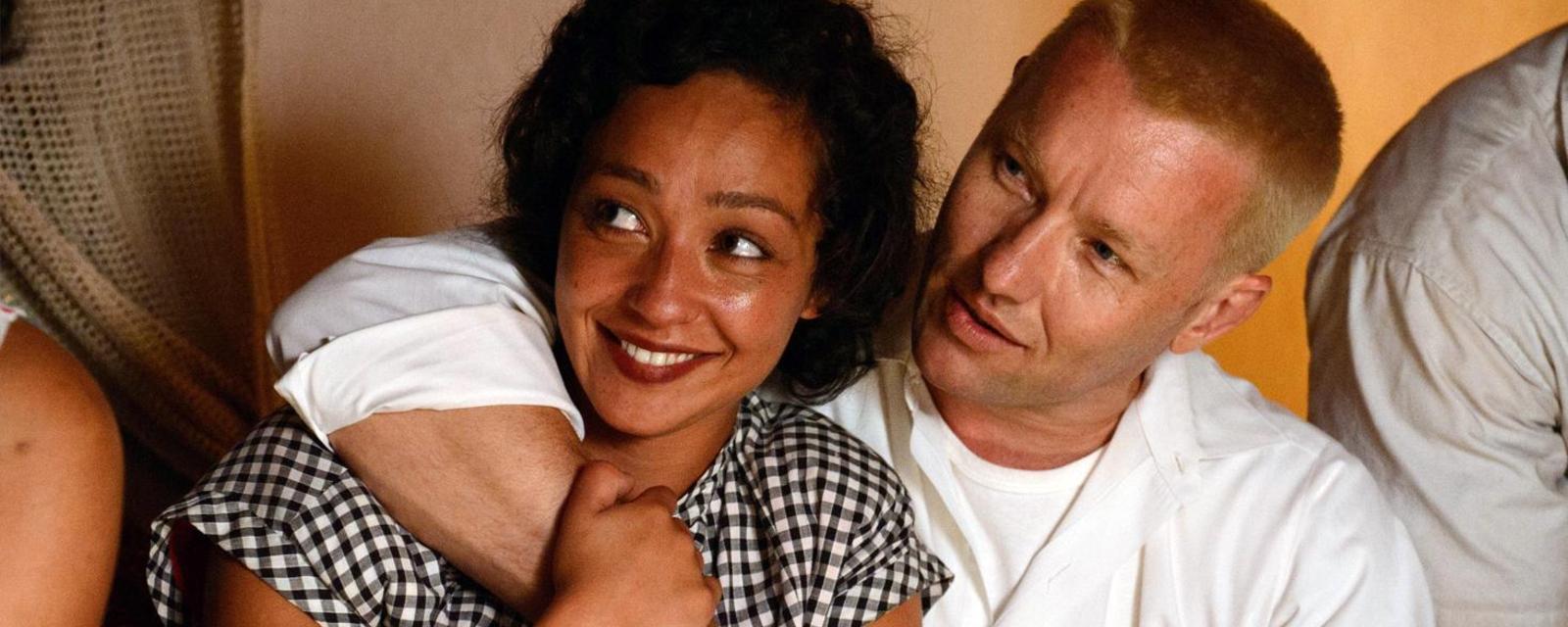A couple’s fight against racism

Jeff Nichols’ new film Loving tells of an interracial couple in the 1950s who overcame racism to be together. Nicholas Barber is impressed by this sober and delicate movie.
Jeff Nichols’ quiet and honourable new issue drama, Loving, could be seen as this year’s Spotlight: both films tell the true story of how an odious injustice was overturned by campaigners in the US in the 20th Century, and yet both films are remarkably restrained and intimate, with none of the grandstanding speeches or bloody violence we’ve been primed to expect. Indeed, Loving is so low key that even Spotlight seems like an Avengers: Age of Ultron in comparison.
Its heroes are Richard Loving (Joel Edgerton) and Mildred ‘Stringbean’ Jeta (Ruth Negga), a white man and black woman who live contentedly in rural Virginia in the late 1950s. When Mildred gets pregnant, Richard drives them both to Washington DC to get married. But inter-racial marriage is still illegal in Virginia. It is deemed “against the peace and dignity of the Commonwealth” – never mind that peace and dignity are all that the newlyweds are asking for.
The couple is soon taken to court by a chillingly saturnine sheriff (Marton Csokas), and the judge affirms that it is against God’s will for people of different races to marry. Thanks to some nifty plea-bargaining by the Lovings’ attorney, they avoid a custodial sentence, but only as long as they move out of Virginia – and stay out for 25 years.
Richard, a skilled builder, knuckles down to life as a father and breadwinner in Washington DC. But Mildred is determined that they belong in the countryside, near their relatives, so she is delighted when lawyers from the American Civil Liberties Union offer to fight their corner.
Quiet struggle
The stage is set, then, for racist attacks and thunderous arguments, crushing defeats and inspirational triumphs, but Nichols (Mud, Midnight Special) has a far more sober drama in mind. Early on, for instance, he keeps putting in scenes of Richard having dinner with Mildred’s family, and of the couple relaxing in their dark, silent house.
Anyone who has ever seen a Hollywood film will be on edge all through these scenes, counting the seconds until a brick is hurled through a window, or a shot is fired, or an insult is yelled from a passing car. But the writer-director is teasing us. The scenes end as placidly as they began, with no purpose except to demonstrate the simple domesticity which the characters treasure.
Richard and Mildred aren’t trying to smash the system or change the world. They just want to be together
Nichols maintains this level of delicacy throughout the film. Even towards the end, when the case of Loving v Virginia reaches the Supreme Court, he doesn’t resort to a traditional, stirring oration on human rights. The Lovings’ clean-cut lawyers (Nick Kroll and Jon Bass) get two or three sentences each, and then Nichols cuts back to the homestead where Mildred is doing the ironing and Richard is tuning up the car.
The film is almost perverse in its avoidance of anything that might smack of sensationalism or cliché. Some viewers may feel, justifiably, that it wouldn’t be inappropriate for such a landmark case to be dramatised with a bit more overt passion. It’s also fair to note that Loving has the shiny, freshly-laundered look of a conventional Hollywood film, even if it doesn’t have the dramatic highs and lows. But you have to respect Nichols’ reserve, which appears to have been inspired by the personalities and priorities of his laconic hero and heroine. Richard and Mildred aren’t trying to smash the system or change the world. They just want to be together.
Besides, if Loving can be accused of being too muted, its central performances speak volumes. At 41, Edgerton is a decade too old for his role, but he transforms himself convincingly into a tough but wary country boy who finds it physically painful to be in the limelight. And while his most emotional monologue amounts to a six-word sentence, he makes every one of those six words count. Negga’s subtlety is even more impressive. It is Mildred who is the more proactive of the two: she is the one who decides to embark on the legal battle, and to stick with it, even when it puts her family in danger. But Negga, an Ethiopian-Irish actor, balances Mildred’s bravery and resilience with sweet, soft-spoken modesty. Loving may not win an Oscar for best picture, as Spotlight did, but you shouldn’t bet against Negga winning one for best actress.
Политика конфиденциальности | Правила пользования сайтом







